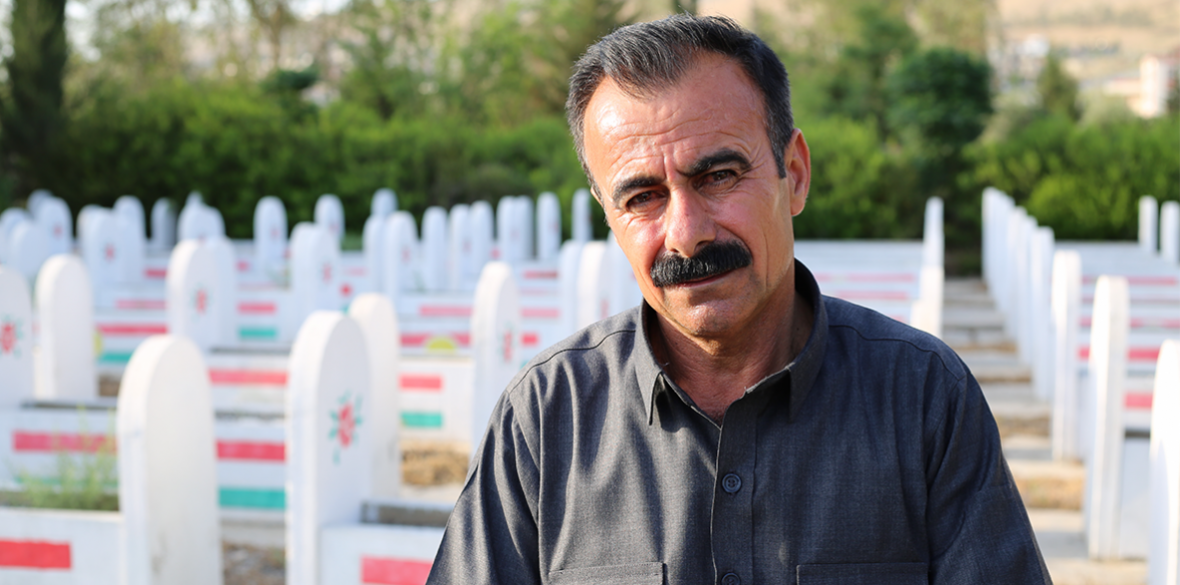This is the last article you can read this month
You can read more article this month
You can read more articles this month
Sorry your limit is up for this month
Reset on:
Please help support the Morning Star by subscribing here
by Steve Sweeney
in Dokan, Iraqi Kurdistan
SURVIVORS of Saddam Hussein’s brutal campaign against the Iraqi Kurds have urged the United Nations, Britain and the United States to break their silence and prevent Turkey from carrying out another genocide.
Speaking to the Morning Star in the city of Dokan, where the Anfal campaign began in February 1988, they accused Western countries of putting oil and other corporate interests before the lives of Kurdish people.
“Nato, the UN, the US and Britain are silent while Turkey invades us,” said Shamal Muhammed Sabir, who was four when he lost his entire family in the 1988 Iraqi military operation.
“Kurdish oil goes to the world through Turkey. So Turkey has probably threatened them and said they won’t give them oil unless they support the invasion,” he said.
The 37-year-old criticised the Kurdistan Regional Government (KRG) for failing to speak out about the latest attack, launched by Turkish President Recep Tayyip Erdogan last Saturday as part of Operation Claw Lightning.
Ankara has been accused of using chemical weapons on three occasions in the mountainous Duhok province, where at least 38 Turkish soldiers are believed to have been killed in clashes with Kurdistan Workers Party (PKK) guerillas.
“The KRG should have called for Turkey to withdraw from our land a long time ago,“ Mr Sabir said.
“But the Kurdistan Democratic Party (KDP) has much interest in this military operation. He [KDP leader Masoud Barzani] wants more power and strength from Turkey. His power rests on Turkey.”
“We are under the threat of Anfal again,” he said tearfully as he urged the world not to ignore another genocidal campaign against the Kurdish people.
At least 182,000 were killed in the Anfal operation launched by Saddam Hussein in February 1988, near the end of the Iran-Iraq war.
Many men, women and children were killed and interred in mass graves, while others were buried alive.
Chemical weapons were used in a number of attacks on Kurdish towns and villages during the operation, most notably in Halabja where 5,000 people were killed.
Just four countries recognise the events as a genocide — Britain, Norway, South Korea and Sweden. Survivors are pressing for wider international recognition as a step towards justice.
“No other nation in the world has suffered the continued injustice and bombardment of the Kurdish people,” said Ghafur Hassan Abdullah, president of the Anfal Survivors Association in Dokan.
“The United Nations should break their silence and prevent another Anfal in these lands.”
Qadir Sdiq Osman, who was 10 years old when he was jailed and told he was to be executed, said that recognition of the Anfal atrocities as a genocide was important for the survivors.
“If you don’t have justice, you don’t have life,” he said.











